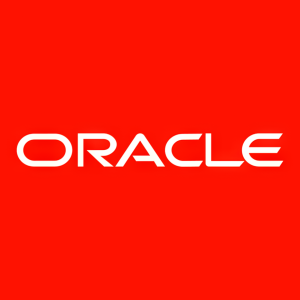Oracle and Deloitte Help Multinational Organizations Prepare for OECD Pillar Two Requirements
New capabilities in Oracle Fusion Cloud EPM and Deloitte's Pillar Two implementation services help finance leaders navigate new tax complexities and regulations
The OECD's Pillar Two requirements represent the largest change to global corporate taxation in decades. The new rules effectively create a global minimum tax rate of 15 percent and significantly impact financial processes and operating structures for large multinational organizations. With Deloitte's Tax Technology Consulting existing Oracle implementation service team, companies can enhance tax reporting with the Pillar Two solution in Oracle Cloud EPM. This complementary pairing can help organizations collaborate across tax, finance, and other operational areas; collect and manage data from various source systems, including the general ledger, subledgers, and more; and better model future impacts of the new requirements.
"International tax compliance is incredibly complex. To efficiently address the new Pillar Two requirements, organizations need to rapidly connect and analyze increasing amounts of data," said René van Gassen, director, Tax Technology Consulting (TTC) at Deloitte Netherlands. "Our implementation skills along with Oracle's solutions can enable finance leaders to effectively leverage Oracle's technology to unite tax and finance processes and efficiently manage compliance."
The new capabilities in Oracle Cloud EPM can help finance teams streamline complex tax processes. These capabilities include:
- Pillar Two data collection and management: Help tax teams automatically collect data from various business systems, including finance, HR, and sales systems, and format the data to align with Pillar Two data model requirements. This provides a strong audit trail and allows teams to spend less time collecting and harmonizing data.
- Pillar Two Task Manager: Streamlines coordination and collaboration across the entire financial close process, minimizing delays to the close. The easy-to-deploy Task Manager enables users to assign and monitor tasks from a central dashboard and provides a simple step-by-step process to guide them through their Pillar Two responsibilities. This helps teams ensure that the Pillar Two process runs as seamlessly as possible.
- Pillar Two tax forecasting and modeling: Provides teams with the ability to forecast and model tax scenarios in Oracle Cloud EPM. This helps predict future impacts of the new OECD requirements so organizations can better prepare for the new global minimum tax.
"As multinational organizations plan for the impact of the new Pillar Two global minimum tax regulations, technology is going to play a key role in helping enable accurate and efficient compliance," said Hari Sankar, group vice president, Product Management at Oracle. "Pillar Two in Oracle Cloud EPM has best practices and advanced modeling capabilities built-in to enable customers to centralize controls, improve tax visibility, and adapt their tax strategies."
"To prepare for Pillar Two reporting requirements, companies need a solution that connects and analyzes enterprise-wide data," said Allison Matthews, Partner, Tax Technology Consulting (TTC) at Deloitte Tax LLP. "The combination of Deloitte's implementation services and Oracle's enterprise performance management technology is instrumental to be prepared for these global changes."
Part of Oracle Fusion Cloud Enterprise Resource Planning (ERP), Oracle Cloud EPM offers a comprehensive set of enterprise performance management capabilities to align financial and operational planning, close the books faster, and manage enterprise master data.
Learn more about Oracle Cloud EPM at Oracle.com and explore Deloitte's tax technology services at Deloitte.com.
About Oracle
Oracle offers integrated suites of applications plus secure, autonomous infrastructure in the Oracle Cloud. For more information about Oracle (NYSE: ORCL), please visit us at oracle.com
About Deloitte
Deloitte refers to one or more of Deloitte Touche Tohmatsu Limited (DTTL), its global network of member firms, and their related entities (collectively, the "Deloitte organization"). DTTL ( also referred to as "Deloitte Global") and each of its member firms and related entities are legally separate and independent entities, which cannot obligate or bind each other in respect of third parties. DTTL and each DTTL member firm and related entity is liable only for its own acts and omissions, and not those of each other. DTTL does not provide services to clients. Please see www.deloitte.com/about to learn more.
Deloitte provides industry-leading audit and assurance, tax and legal, consulting, financial advisory, and risk advisory services to nearly
Trademarks
Oracle, Java, MySQL, and NetSuite are registered trademarks of Oracle Corporation. NetSuite was the first cloud company--ushering in the new era of cloud computing.
![]() View original content to download multimedia:https://www.prnewswire.com/news-releases/oracle-and-deloitte-help-multinational-organizations-prepare-for-oecd-pillar-two-requirements-302031577.html
View original content to download multimedia:https://www.prnewswire.com/news-releases/oracle-and-deloitte-help-multinational-organizations-prepare-for-oecd-pillar-two-requirements-302031577.html
SOURCE Oracle









